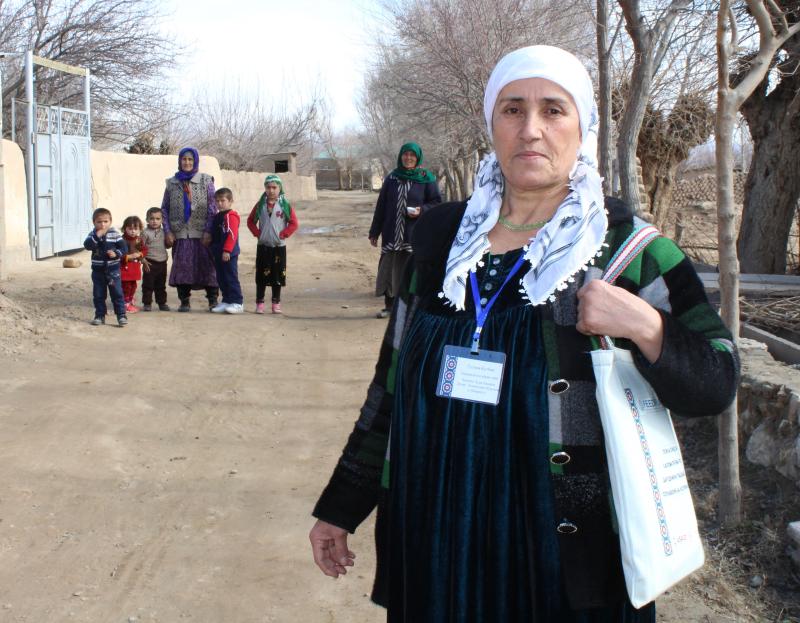Where We Work
See our interactive map


Thousands of people in Khatlon region now have greater access to health services and sanitation, thanks to the work of community health volunteers. Photo by Khosiyatkhon Komilova for IntraHealth International.
Thousands of people in Tajikistan's Khatlon region now have greater access to health services, nutrition, and sanitation, thanks to Feed the Future Tajikistan Health & Nutrition Activity (THNA), implemented by IntraHealth International.
In the twelve districts where IntraHealth conducts the USAID-funded work, in partnership with Abt Associates, widespread malnutrition leads to stunting, anemia, and poor maternal and child health, while infrastructure for proper sanitation and hygiene remains inadequate.
THNA recruited and trained 1,300 health volunteers and 500 agriculture volunteers.
To mitigate these issues, THNA recruited and trained 1,300 health volunteers and 500 agriculture volunteers who have given families access to health advice, agricultural skills, and necessary referrals.
These interventions mark a significant shift toward healthy behaviors in the communities supported by THNA. Since 2016:
Volunteers work across maternal and child health, hygiene, agriculture, and advocacy:
46% more families have soap present at a handwashing station.
In addition, new peer-support groups in each of the 500 project-supported communities bring together key groups, including:
Using these and other project results, THNA conducts quarterly meetings with the Khatlon Department of Health, district primary health center and hospital managers, and community volunteers to encourage data-driven decisions.
The project team advocates for linking community volunteers with Centers for Healthy Lifestyles and government-led public health and health-promotion centers for community outreach in order to make them part of the formal health system and sustain these improvements.
IntraHealth International leads the USAID-funded Feed the Future Tajikistan Health & Nutrition Activity. With our partner Abt Associates, we are working to improve health and nutrition in Tajikistan, particularly among women and children in the Khatlon oblast. The activity integrates high-quality maternal, newborn, and child health care at the family, community, clinical, and national levels, with an emphasis on nutrition, sanitation, and hygiene.



